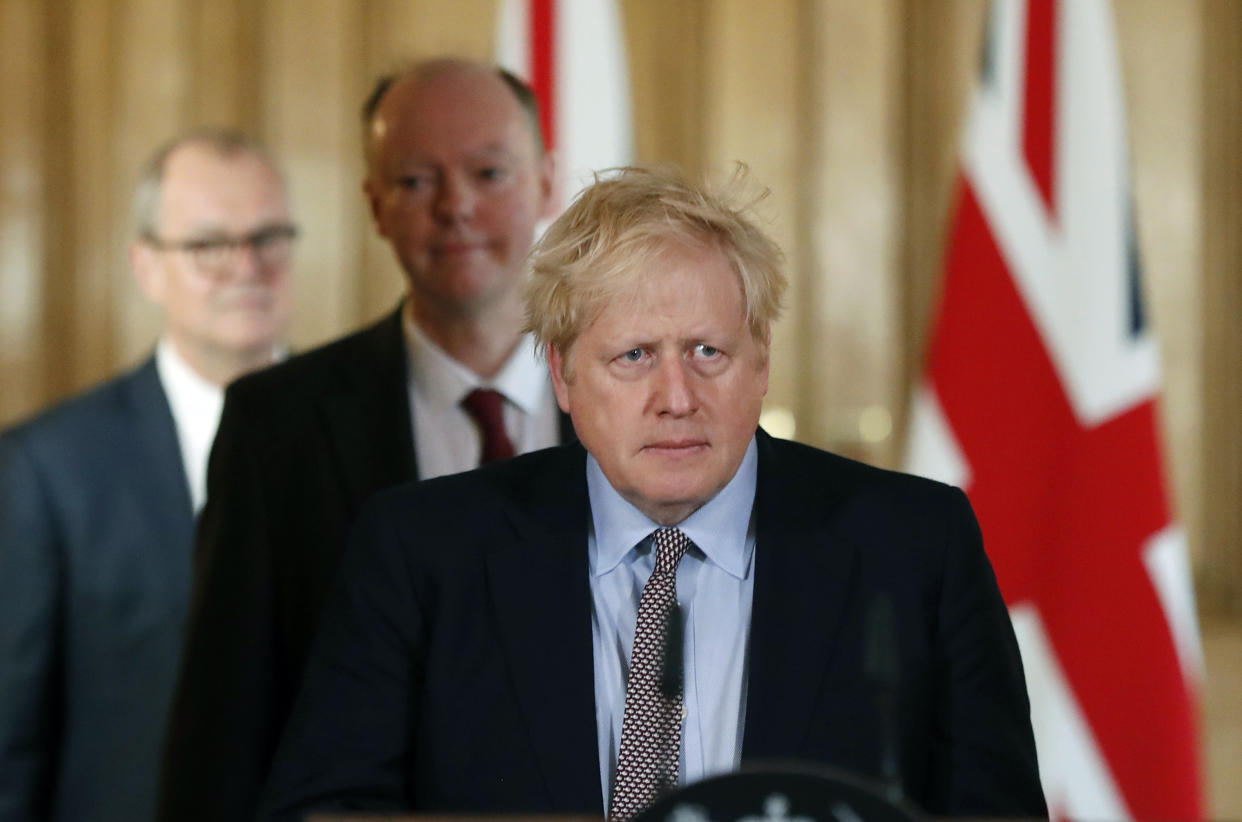Here are the four phases of the government's coronavirus action plan

The government established four phases for dealing with the coronavirus outbreak in its action plan.
They are contain, delay, research and mitigate.
So, as the number of cases increase across the country, what do these phases consist of?
Here is everything you need to know.
Contain
Prof Chris Whitty, England’s chief medical officer, said on 4 March the UK had “mainly” left this phase.
It consisted of detecting early cases, following up people who had been in close contact with patients and preventing the disease taking hold “for as long as is reasonably possible”.
Delay
This consists of slowing the spread, “lowering the peak impact and pushing it away from the winter season”.
The government said this is important because it reduces overlap with seasonal flu and other challenges the colder months bring.
People can take much of the action themselves, such as washing their hands more.
However, other actions could be enforced on the public, including school closures, reducing large-scale gatherings and encouraging greater home working.
The delay phase also buys time for drug testing and development of vaccines.
Research
This phase will seek “better understanding of the virus and the actions that will lessen its effect on the UK population”.
It will include further development of drugs and vaccines, for which the government pledged £40m.
Read more: Five ways the government's coronavirus action plan could affect you
Part of the research phase will also include readiness for a “future wave” of outbreaks. It is not yet known if coronavirus could have a seasonal pattern, like flu.
Mitigate
The fourth and final phase is about caring for those who become ill, and supporting hospitals.
An increase in deaths is likely during this stage, particularly “among vulnerable and elderly groups”.
Minimising the impact of the disease on society, public services and the economy is also a priority. However, the government has warned key public services could be affected by staff absences.
Fire and police services, for example, may have to drop low-priority callouts. In the NHS, non-urgent healthcare appointments may be delayed.
Despite these problems, the government insisted: “The UK remains in a high state of readiness to respond robustly to any disease outbreak, and our track record of success means that we can offer a high degree of assurance that we will be able to maximise the effectiveness of our health and care systems, and in doing so also respond effectively to the outbreak.”

 Yahoo News
Yahoo News 
